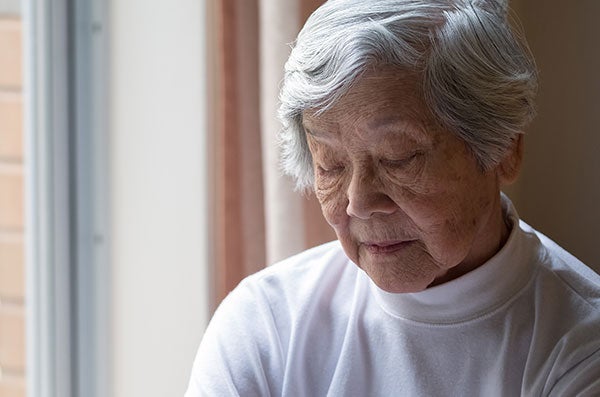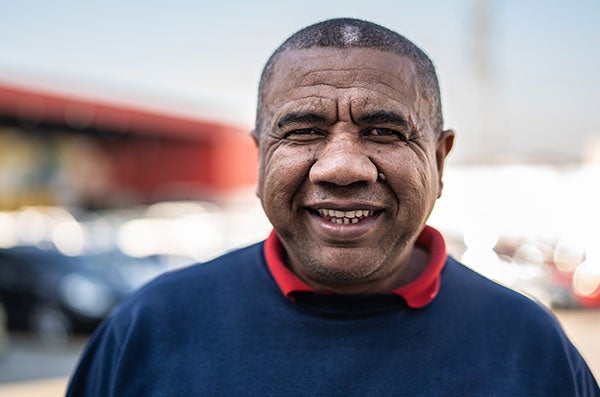Research & Sponsored Projects
Addressing Changing Demographics in Illinois' Older Population

In conjunction with the Illinois Department on Aging, the Center for Social Policy and Research was tasked with strengthening the state plan on aging by addressing two concerns: validate the IDOA’s existing approaches to meet the unique needs and challenges facing older minority adults; and assess the adequacy and accessibility of its existing outreach, services, and programs provided to older minority adults.
Led by John Kingsley Holton, PhD, director of strategic initiatives at the Center, results from focus groups and an online survey were used to compose The Future of All Aging Adults in Illinois – Towards an IDOA Minority Outreach & Demonstration Program of Inclusion, Diversity, and Equity. The report, presented in September 2022, detailed the concerns, ideas, and hopes from a cross-section sample of minority older adults with additional attention from those with lived experiences as persons who are dual-citizens, immigrants, returning citizens, LGBTQI+, and rural residents to improve the Illinois Department on Aging outreach, services, and programs. The study evaluated the Department’s existing outreach approaches and developed a comprehensive outreach plan to address the anticipated changing demographics in Illinois’ older adult population.
“Recommendations from the study addressed structural and organizational barriers potentially remedied by diversifying staff and increasing translation of English-only information, as well as aggressively collaborating with the Departments of Healthcare & Family Services (HFS) and Public Health (IDPH) to share real-time data and partnering with overlooked community partners serving marginalized groups,” Holton said.
Assisting Holton were Creasie Finney Hairston, PhD, Marybel Flores, MSW, Gayle Hutchinson, MA, Chang-ming Hsieh, PhD, MSW, Andrea Manriquez, and Terry Solomon, PhD.
Freeing People from Institutionalization and Helping Them Thrive in Their Communities

In partnership with and with funding from the Illinois Department of Human Services, Division of Mental Health, the Center is evaluating implementation of the Williams Consent Decree, in which the State of Illinois agreed to help people with serious mental illness who have been residing in nursing homes transition to community-based living.
Center researchers are examining a range of factors that contribute to or hinder peoples’ successful transition out of institutional living, as well as determining the services and supports that are most effective in helping them maintain an independent life in the community.
As a result, from 2012 to 2018, more than 2,200 nursing home residents transitioned to community living, and the Center’s work in support of this vulnerable population is ongoing.
Accurate and Equitable Representation for Marginalized Communities

Operation Ac-COUNT-Ability: Don’t Count Us Out
Under a grant from the Illinois Department of Human Services, the Center conducted Census 2020 outreach for populations deemed “hard-to-count” (HTC) by the U.S. Census Bureau. The Chicago Region is comprised of 77 Community Areas, of which 64 are assigned to particular grantees based on areas with the largest HTC populations.
The Policy Center led targeted outreach efforts for people who are young and mobile, and community college students, throughout the 64 Chicago Community Areas with HTC residents, in partnership with the community-based organizations Alliance of Local Service Organizations and Acclivus, Inc.
An accurate census count is vital to ensure funding for critical services and programs and to ensure political representation for marginalized communities and populations:
- The State estimates that even a one percent undercount would result in the State losing $19,557,435 per year for a decade, resulting in a total loss of nearly $200 billion.
- The number of seats Illinois has in the U.S. House of Representatives for the next 10 years will be determined by the 2020 census count.
- Census data is used by state and local governments to redraw electoral maps. At the State level, this will impact the size and make-up of each district in the Illinois General Assembly.
Understanding Black Men's Experiences with the Criminal Justice System

Under the direction of Dean Creasie Finney Hairston, and based in Memphis, Tennessee, Just Living Life is a study of the daily lives of Black men living in a mixed income, though primarily poor, urban community. Using interviews and focus groups, the study explores the challenges and problems men face and the strategies they use to bounce back from adversities. It examines Black men’s views of their primary roles and strengths, their perceptions of home and community life and their thoughts about community services and programs. Initial findings convey the extensive criminal justice system presence in many men’s lives and their limited use of, access to, and knowledge of formal services, including basic health services.
Just Living Life is one of a series of studies examining the impact of criminal justice system involvement on family and community life. Others include Dr. Joseph Strickland’s study of the post-prison employment experiences of African American men and evaluation of a correctional boot camp program.
Combating Human Trafficking and Sexual Exploitation

Assistant Professor Charles Hounmenou is expanding our understanding of the distinctive characteristics and patterns of human trafficking in different populations and in different nations, in order to more effectively combat this growing and destructive industry.
An internationally-recognized authority on human trafficking and sexual exploitation, including the commercial sexual exploitation of children (CSEC), Hounmenou has conducted extensive research in West Africa. He is replicating some of that research here in the United States, and is preparing to conduct a needs assessment and service review with Chicago area youth who have been involved in CSEC, to give them a voice in determining the approaches and services that will be most helpful in liberating them from exploitation.
Hounmenou authored two widely-distributed and widely-read Fact Sheets on human trafficking: